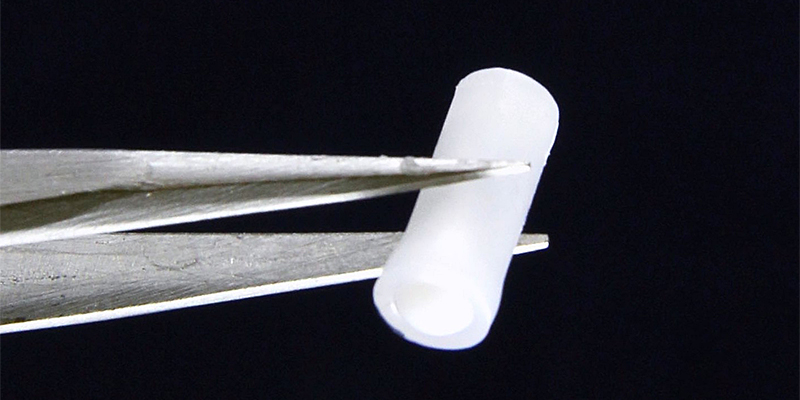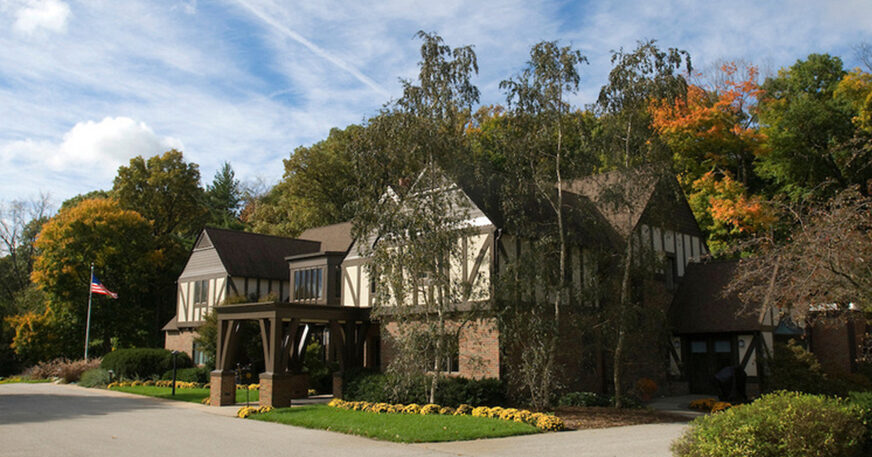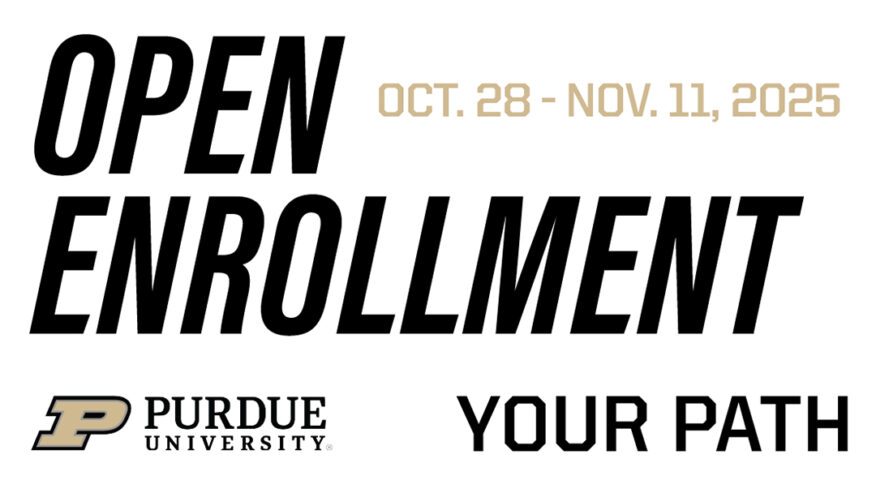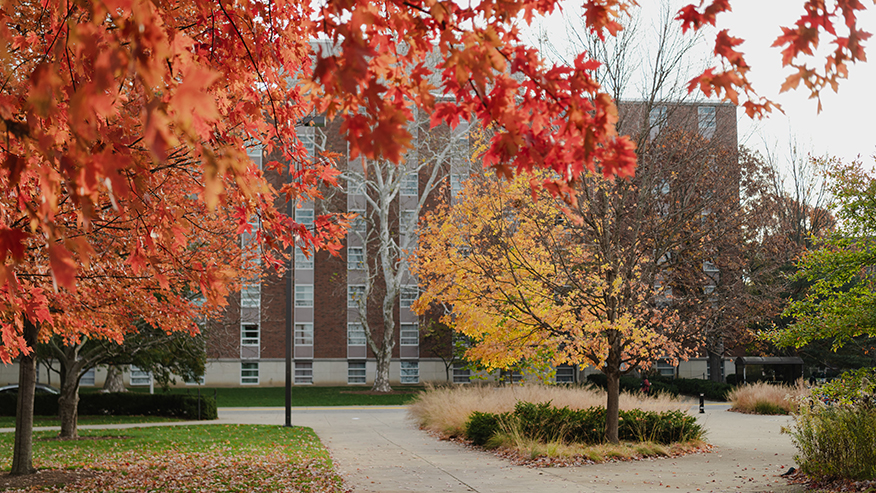Opioid overdose detection and response startup receives four-year, $2.8M Fast-Track SBIR grant from NIH
Rescue Biomedical’s technology detects an overdose and immediately delivers naloxone to reverse it

Rescue Biomedical is developing a minimally invasive subcutaneous device that automatically delivers naloxone when a person overdoses on an opioid. The company has received a four-year, $2.82 million Fast-Track Small Business Innovation Research, or SBIR, grant from the National Institutes of Health to develop its technology. (Photo courtesy Hugh Lee)
WEST LAFAYETTE, Ind. —
Rescue Biomedical has received a Fast-Track Small Business Innovation Research, or SBIR, grant from the National Institutes of Health to develop its technology that detects when a person is overdosing on an opioid and delivers naloxone to reverse the action.
Hyowon “Hugh” Lee, Rescue Biomedical CEO, said the company looks to partner with recovery clinics and clinicians to identify and work with opioid use disorder (OUD) patients at high risk of overdosing again.
“OUD patients who recently undergo treatment are at a higher risk of accidentally overdosing again due to their lowered tolerance,” said Lee, who also is a Purdue University associate professor from the Weldon School of Biomedical Engineering, director of the Center for Implantable Devices at Purdue, and Purdue Faculty Champion in Mental Health and Substance Misuse. “Our device is a closed-loop drug delivery system that automatically detects when someone is overdosing and immediately provides life-saving naloxone to prevent long-term neurological damage or death.”
The four-year, $2.82 million grant is an expedited award. It requires administrative approval at the end of what would be a traditional Phase I period to continue to Phase II with no required additional scientific review.
Lee said Rescue Biomedical seeks to complete specific milestones through the lifetime of the grant.
“In Phase I, our goal is to better understand customer needs and identify a regulatory pathway for an approval from the U.S. Food and Drug Administration,” he said. “In Phase II, we aim to perform more usability evaluations and demonstrate functionality as we move toward regulatory approval.
“After the successful conclusion of these milestones, we will need to raise additional funds to scale up our manufacturing and to go through clinical trials to obtain regulatory approval.”
Lee said federal SBIR and Small Business Technology Transfer (STTR) grants are lifelines for small businesses like Rescue Biomedical.
“They provide us with a substantial, non-dilutive launchpad to further develop our ideas to bring to the market,” Lee said. “It gives us more visibility and credibility to other potential investors and stakeholders since we have gone through the rigors of federal review panels. We are trying to work on solving real-life problems that affect hundreds of thousands of people across the country, and the SBIR program from the NIH is enabling it.”
Rescue Biomedical’s team includes Purdue researchers Craig Goergen, the Leslie A. Geddes Associate Professor of Biomedical Engineering; Chi Hwan Lee, the Leslie A. Geddes Associate Professor of Biomedical Engineering and associate professor of mechanical engineering; and Jacqueline Linnes, the Marta E. Gross Associate Professor of Biomedical Engineering. Vy Le, a former student of Hugh Lee, also is involved with the company while also pursing an MBA from Rice University. The company collaborates with MED Institute and Drs. Matthew Aalsma and Allyson Dir of the Indiana University School of Medicine.
Dir said medical professionals are seeing record rates of opioid overdoses. The Centers for Disease Control and Prevention reported there were 91,799 overdose deaths in the United States in 2020, an increase of 31% from 2019.
“The development of the Rescue Biomedical technology is really exciting and comes at a critical time,” Dir said. “Harm reduction is meant to save lives, and this potential technology will be a great addition to that toolkit of strategies and interventions. The more resources that are available, the more opportunities there are to improve outcomes and save lives.”
Rescue Biomedical licenses its technology through the Purdue Research Foundation Office of Technology Commercialization. It also is a client of the Purdue Foundry, an entrepreneurship and commercialization hub whose professionals help Purdue innovators create startups.
About Purdue University
Purdue University is a top public research institution developing practical solutions to today’s toughest challenges. Ranked in each of the last five years as one of the 10 Most Innovative universities in the United States by U.S. News & World Report, Purdue delivers world-changing research and out-of-this-world discovery. Committed to hands-on and online, real-world learning, Purdue offers a transformative education to all. Committed to affordability and accessibility, Purdue has frozen tuition and most fees at 2012-13 levels, enabling more students than ever to graduate debt-free. See how Purdue never stops in the persistent pursuit of the next giant leap at https://stories.purdue.edu.
About Purdue Research Foundation Office of Technology Commercialization
The Purdue Research Foundation Office of Technology Commercialization operates one of the most comprehensive technology-transfer programs among leading research universities in the U.S. Services provided by this office support the economic development initiatives of Purdue University and benefit the university’s academic activities through commercializing, licensing and protecting Purdue intellectual property. The office is housed in the Convergence Center for Innovation and Collaboration in Discovery Park District at Purdue, adjacent to the Purdue campus. In fiscal year 2021, the office reported 159 deals finalized with 236 technologies signed, 394 disclosures received and 187 issued U.S. patents. The office is managed by the Purdue Research Foundation, which received the 2019 Innovation and Economic Prosperity Universities Award for Place from the Association of Public and Land-grant Universities. In 2020, IPWatchdog Institute ranked Purdue third nationally in startup creation and in the top 20 for patents. The Purdue Research Foundation is a private, nonprofit foundation created to advance the mission of Purdue University. Contact otcip@prf.org for more information.
About Purdue Foundry
The Purdue Foundry is an entrepreneurship and commercialization hub whose professionals help Purdue innovators create startups. The Purdue Foundry is managed by the Purdue Research Foundation, which received the 2019 Innovation and Economic Prosperity Universities Award for Place from the Association of Public and Land-grant Universities. Contact the Purdue Foundry at foundry@prf.org.
Writer/Media contact: Steve Martin, sgmartin@prf.org
Sources: Hyowon “Hugh” Lee, hwlee@purdue.edu
Allyson Dir, adir@iu.edu


